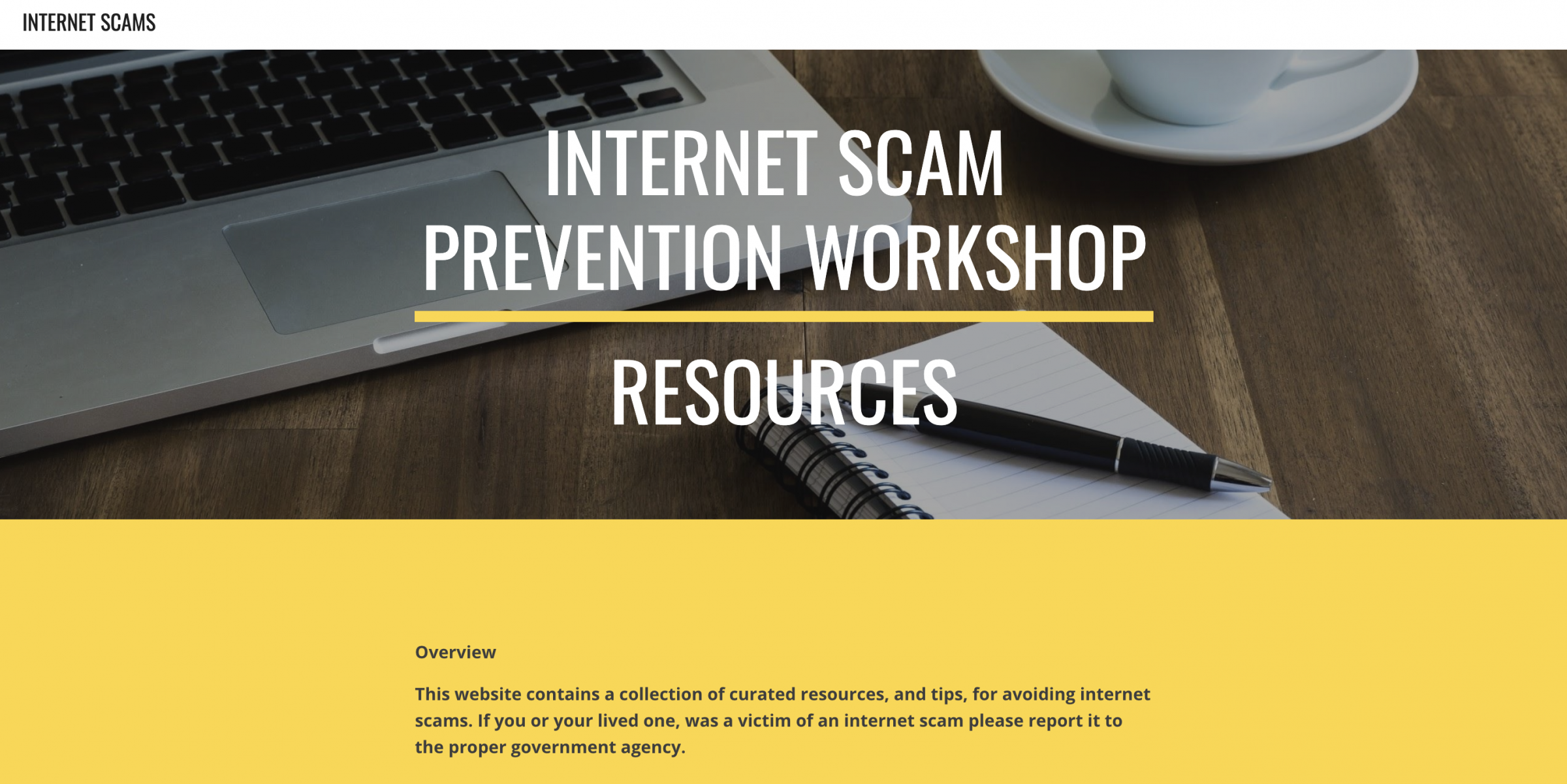Skills Against Scams

With the advent of the internet, a new kind of danger has emerged: digital scams. From identity theft perpetrated on hapless victims to individuals posing as legitimate companies in order to steal personal information, we have all observed a noticeable increase in the presence of digital scams. The problem we face is two-fold, as scams evolve with technology, new ones often crop up. Phone scams have made a comeback in recent times as well, working in terrible synchrony with the enduring computer scams we are so used to seeing. While scams can target all demographics, immigrants to the United States and the elderly are particularly vulnerable.
The aim of this project was to educate individuals with varying degrees of digital literacy on common digital scams they might face. In order to accomplish this goal, we created three major methods of dispersing the information: online workshops conducted through Zoom, a website, and videos uploaded to YouTube. We gave a series of four remote workshops tailored to different sites that ranged from a senior home to a few adult education centers. We used a Google Slides presentation to inform students about tell-tale signs of digital scams and how to verify the validity of sources of information. We also showed examples of different digital scams, and provided space for attendees to ask questions.
While we tailored our workshops to best inform elderly adults and immigrant populations, we offered content that was accessible to everyone through our website. This website houses additional handouts for participants to view and share with their loved ones. We also pooled our videos on this website.
For use in our workshops and for those on the lower end of digital literacy, we made a series of tip videos that can be played at a slower speed and offer captions. For those wanting to get a bit more in-depth, the material is available to run through a full session on the topics, including full-length versions explaining various kinds of digital scams and a video explaining what to do if you have been scammed. All of these videos and other resources can be found on our website.
Group members: Katherine Erickson, Erienne Nelson, Kenzie Putz
Community Partner: Silverview Education Center, Episcopal Homes
Each year our 35 CTEP AmeriCorps members choose community action projects that make a contribution to bridging the digital divide. The CTEP civic engagement projects are often cited by CTEP AmeriCorps members, staff, supervisors, and community supporters as one of the most unique and energizing parts of the program. This is one of the 2021 civic engagement projects.
